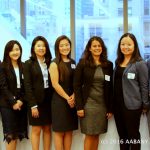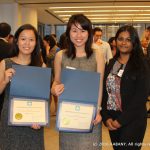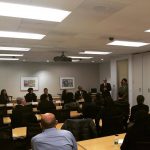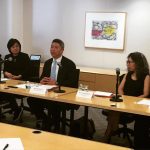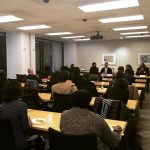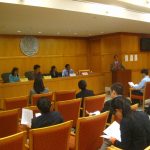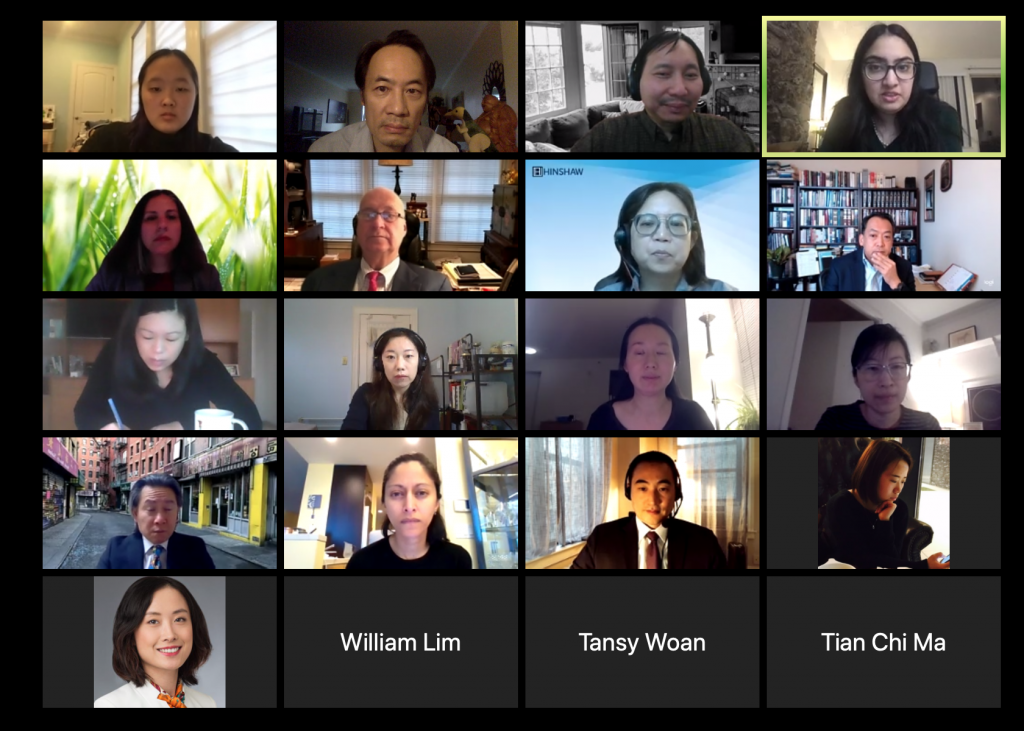
On December 5, the AABANY Litigation Committee hosted its annual Trial Advocacy Program, featuring the Honorable Diane Gujarati as this year’s keynote speaker. The all-day program, which started in 2012, gives attendees the opportunity to participate in mock trials led by experienced faculty members. Additionally, the distinguished and experienced faculty members present morning and afternoon panels on effective trial advocacy.
The day started with a keynote speech by Judge Gujarati, who discussed her experience as a trial lawyer and gave advice to the attendees. She emphasized the importance of attention to detail and preparation, as well as flexibility. While working before and during the trial, unexpected challenges will arise, and it is crucial to be able to take the time to regroup and remain focused even in such a high pressure environment. Additionally, she highlighted the importance of having good “people skills” because trial attorneys must relate, talk, and listen to a wide range of people. Judge Gujarati also noted the importance of trial attorneys truly advocating for their clients and, in concluding her speech, emphasized that trial lawyers must, of course, conduct themselves honestly and ethically.
Then, the morning panel started with faculty members Manisha Sheth and Mark Berman giving a presentation on conducting effective opening statements and direct examinations. They emphasized the importance of rehearsing the opening statement, since it is the first thing the jury will hear and thus is incredibly important. Additionally, the opening statement should be a punchy, relatable, easy-to-follow description of the case that incorporates an emotional element to it in order to situate the jury with the client’s story. During the direct examinations, it is important to ask simple, open-ended, non-leading questions and practice with the witness beforehand. While asking these questions, it is equally important to be an active listener and avoid talking too much; direct examinations should be focused on humanizing the witness and letting them tell their own story.
Once the panel concluded, the students were divided into two break-out groups to participate in mock trials. This year’s scenario consisted of a parent of a three-year-old suing a day care for negligence after the child broke his arm under staff supervision. The participants were divided into a pair of plaintiff’s counsel and a pair of defendant’s counsel, and then conducted opening statements and direct examinations. The faculty members listened to the two sides and then worked directly with the students to give feedback and critique.
After a lunch break, faculty members Joe Gim and James Cho started the afternoon panel by presenting on cross-examinations and closing statements. Unlike during the direct examination, during the cross-examination, the trial lawyer is the star. In a standard cross, the goal is to plant seeds of doubt into the credibility of the witness by impeaching them or forcing them into a “gotcha moment” where the witness contradicts themselves. To accomplish this, the trial lawyer must first make the witness comfortable with easy, unintimidating questions, then lay the foundation for later admissions, and finally lock in a crucial contradiction or admission of guilt. The discussion then turned to the closing statement. Similar to an opening statement, it is critical to continuously rehearse the closing statement in order to present the story in a seamless and relatable manner. In addition to memorizing the first and last line, it is also helpful to practice in front of non-lawyer friends and family, since that will be most similar to the actual jury. Following this presentation, the students returned to break-out rooms to conduct cross-examinations and closing statements and receive additional critique from the faculty.
Despite being held on Zoom this year, Trial Advocacy Program was a great success. The participants all really enjoyed the program, and they were able to learn from the experienced faculty and get hands-on trial experience. Thank you to Jenny Wu, Aakruti Vakharia, and Luna Barrington, Co-Chairs of the AABANY Litigation Committee, for organizing the event. And thank you to Judge Gujarati and the faculty members Manisha Sheth, Mark Berman, Joe Gim, James Cho, Sam Yee, Connie Montoya, Yasuhiro Saito, and Peter Polchinski.


